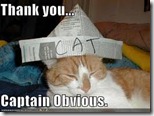Fiction-Zone: Leaps in Fiction Mastery by Diane Holmes
The 20-Minute Test – Why We Need It
 Novelists are often oblivious to what makes a story work (or worse, almost work, but not quite) when it’s their own.
Novelists are often oblivious to what makes a story work (or worse, almost work, but not quite) when it’s their own.
We only know what we’re trying to do, how hard we’re working, and the hundreds of techniques and plot/character details we’re trying to pull off in any given scene.
This blind spot is a key reason we (a) re-write ad nauseam, (b) rely on critique partners who are equally blind, and (c) are constantly waffling between trust in our skills and the sure certainty that we suck. And it’s why we don’t know if we’re not selling because our writing “isn’t good enough to get published,” or because we’re still looking for that right agent, editor, or reader. The ones who get us.
It doesn’t take long for career writers (those who treat writing as their profession–unpublished or published) to lose their ability to be readers. Oh, we read, all right. But we read like writers who read. We are aware of every technique, every word, every cog turning. It becomes a rare event to read “ravenously, emotionally, viscerally.”
And the loss of our reader’s compass at the time we need it most (determining if your character, your scene, or your entire story works) requires a clever solution. My clever solution is named Scott.
The title of this post is what my husband said to me when I asked him why he liked one debut TV show vs. another TV show. Instantly, he had an answer. (He’s fully prepared for a pop quiz at any moment. Twenty-two years of being married to a fiction writer has *so* prepared him to provide discussion points.)
The 20-Minute Test – How it Works
Stories take place inside the reader’s mind. Vivi Andrews over at Damned Scribbling Women calls books “a living space” for the reader. Every action, every event, and every line of dialogue implies a “world” to the reader.
And herein lies the AHA technique. We may not be able to fully judge our own writing, but we can certainly re-read a scene asking the following questions.
- Based on this (action, event, dialog, thought, decision, outcome, etc.), what will a smart reader expect to happen next?
- What will the smart reader know about the story?
- How will the smart reader expect that to play out to the end of the book?
And here’s the test: If the reader’s expectations are pretty much correct, you have just bored your readers by providing a “living space” they’ve already visited.
For the reader, your story doesn’t work, because they’re reading a new book (your book) for a new experience.
As Alyx Dellamonica says, “I also consider a book not quite good if its story or protagonist bore me, even if the prose is beautiful.”
Alyx and Scott would get along great.
Don’t bore the readers with an obvious trajectory, because while you’re busy writing, they’re busy unfolding the story in their mind’s “living spaces” and hoping they can’t out-think you in 20 minutes.
—
 Diane is Founder and Chief Alchemist of Pitch University.
Diane is Founder and Chief Alchemist of Pitch University.







